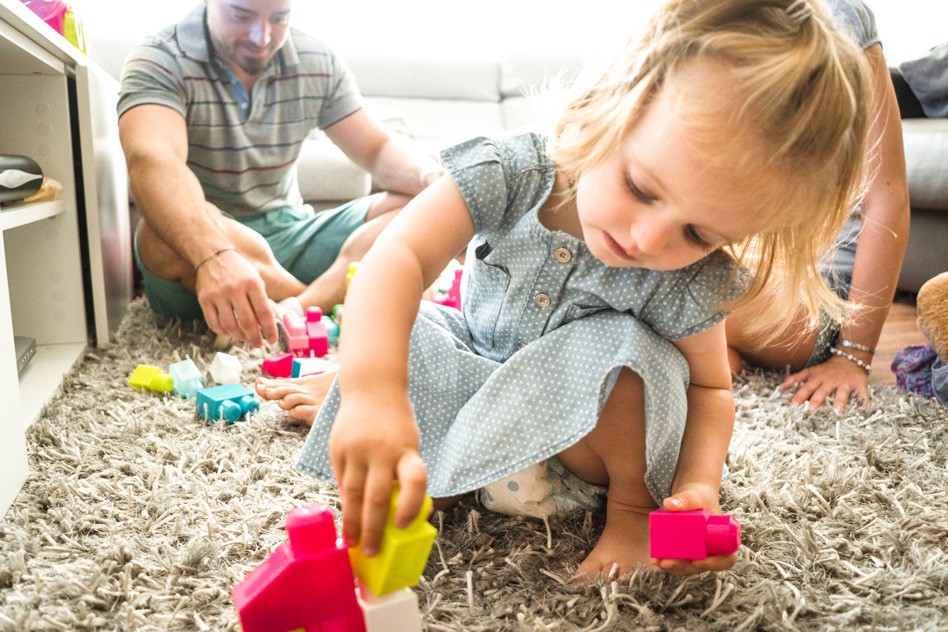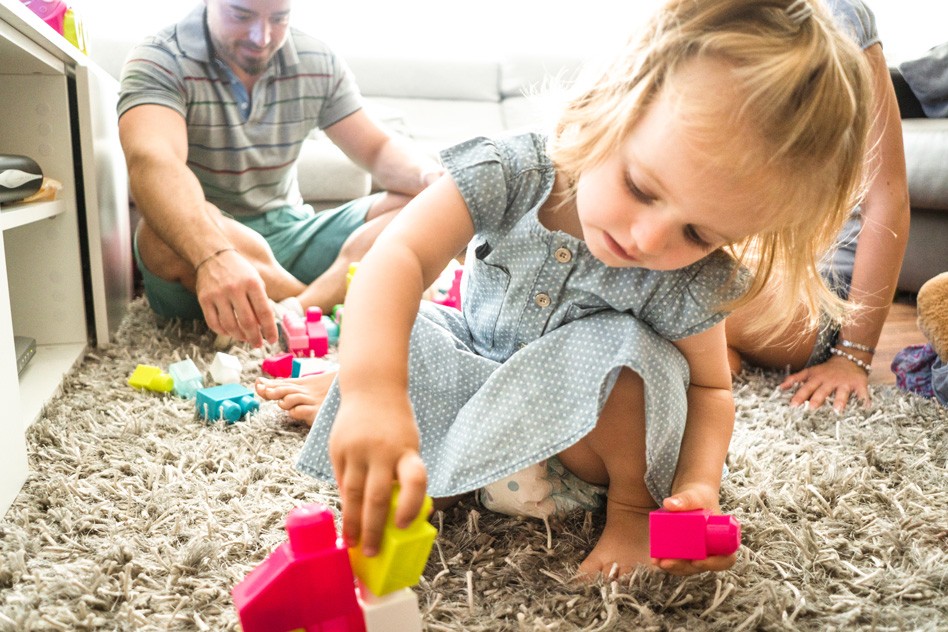

True Grit
Babies learn tenacity through observation.

If at first you don’t succeed, try, try again.
MIT researchers have found that babies as young as 15 months can learn to follow this advice. In their study, babies who watched an adult struggle at two different tasks before succeeding tried harder at their own difficult task than babies who saw an adult succeed effortlessly.
In the experiment, the babies first watched an adult perform two tasks: removing a toy frog from a container and removing a key chain from a carabiner. Half saw the adult quickly succeed three times within 30 seconds; the other half saw her struggle for 30 seconds before succeeding.
The experimenter then showed the baby a musical toy with a nonfunctional button that looked as if it should turn the toy on. Out of the baby’s sight, the researcher turned the toy on, using a concealed, functional button, to demonstrate that it played music, and then turned it off and gave it to the baby.
Each baby was allowed two minutes to play with the toy. Those who had seen the experimenter struggle before succeeding pressed the button nearly twice as many times overall as those who saw the adult succeed easily. They also pressed it nearly twice as many times before asking for help or tossing the toy. This suggests that people appear to be able to learn, from an early age, how to make decisions regarding effort allocation.
“There’s some pressure on parents to make everything look easy and not get frustrated in front of their children,” says Laura Schulz, a professor of cognitive science and senior author of the study, which appeared in Science. “This does at least suggest that it may not be a bad thing to show your children that you are working hard to achieve your goals.”